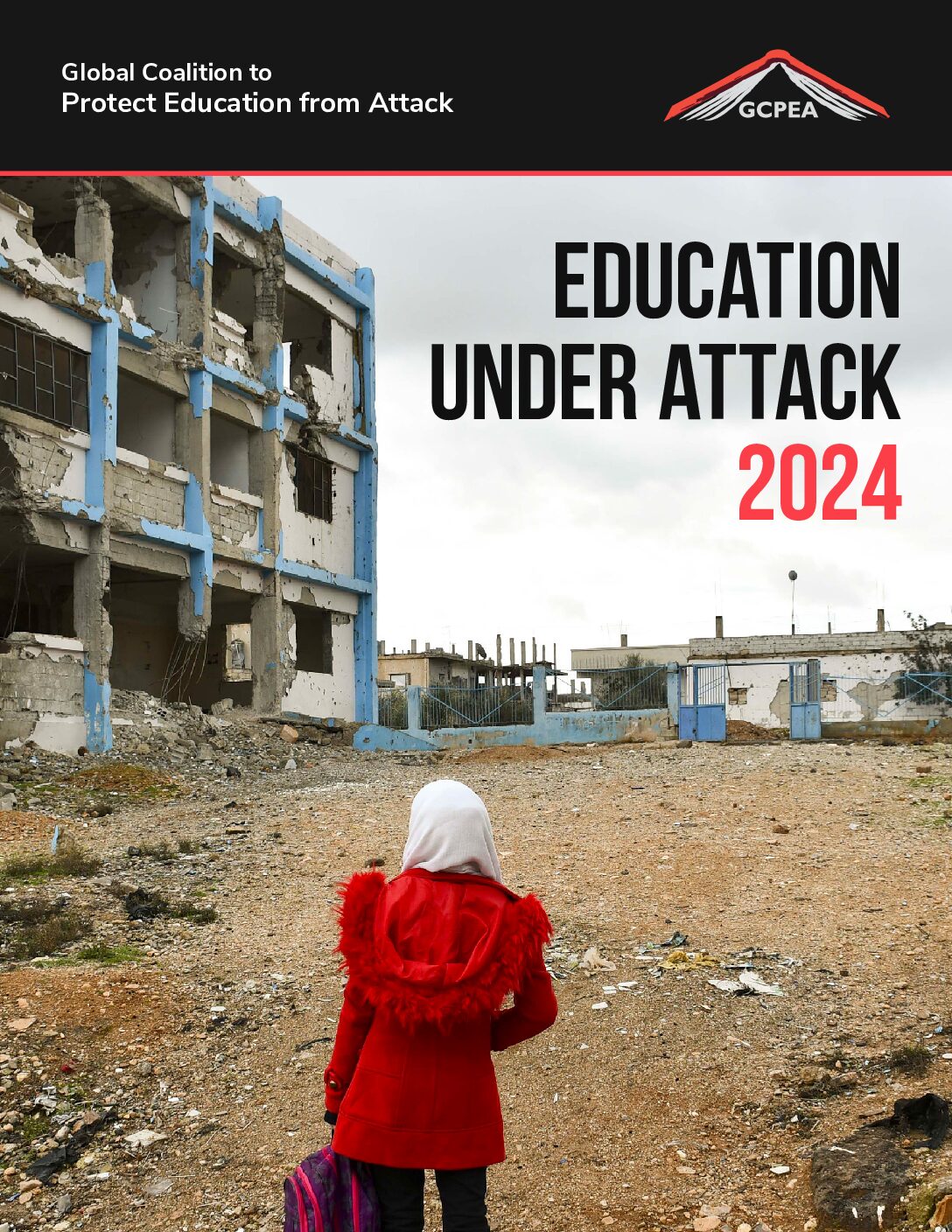GCPEA News
Estonia Endorses the Safe Schools Declaration
24 European Union States Have Now Committed to Protect Education
April 3, 2020
(New York, April 4, 2020) – The Government of Estonia has endorsed the Safe Schools Declaration, becoming the 103rd country to commit to safeguarding education during armed conflict, said the Global Coalition to Protect Education from Attack (GCPEA) today.
The Safe Schools Declaration provides a framework for cooperation at the national, regional, and global levels by identifying a range of measures that governments and others can take to prevent and respond to attacks on educational facilities and to curtail their use for military purposes.
With Estonia’s endorsement, 24 European Union (EU) and 41 Council of Europe members have taken this critical step towards ensuring safe education for all. Only three EU countries—Hungary, Latvia, and Lithuania—remain to endorse before the EU becomes the first regional group to universally join the Safe Schools Declaration.
“Estonia’s commitment should serve as a clarion call for the few remaining EU countries to pledge political support to protect and continue education during armed conflict,” said Diya Nijhowne, GCPEA Executive Director. “Europe has been at the forefront of international efforts to protect children and their education in wartime and should continue its united leadership by ensuring that the Safe Schools Declaration is implemented at both national and institutional levels.”
As a current member of the UN Security Council, Estonia’s support for the Declaration is particularly significant. Although the majority of Security Council members have already endorsed the Declaration, China, Indonesia, Russia, Saint Vincent and the Grenadines, Tunisia, and the United States have yet to do so.
During Estonia’s tenure on the Security Council, it has committed to advancing solutions for conflict prevention and protection of civilians. Protecting education from attack and schools and universities from military use can help ensure the safety of civilians – students and education personnel – and preserve the civilian character of schools. States and armed non-state groups should refrain from using schools for military purposes and incorporate clear protections for schools in their legislation, military doctrine, and policies.
Estonia’s hosting of the Security Council annual open debate on the Protection of Civilians in Armed Conflict in May will be an opportune moment for the remaining six Security Council members and three EU members, to announce their support for the Safe Schools Declaration.
Galvanizing action to protect education during wartime could not be more critical. Shortly, GCPEA will release the next edition of its flagship report, Education Under Attack 2020. In the past five years, GCPEA found that attacks on education and military use of schools emerged in new countries and increased in previously affected countries. GCPEA identified a systematic pattern of attacks on education and military use of schools in 37 countries, an increase from 28 countries in the 2018 edition of the report.
At the same time, GCPEA’s forthcoming report will also outline positive developments in protecting education in some conflict-affected countries that have endorsed the Safe Schools Declaration – such as Afghanistan, Central African Republic, Mali, Nigeria, and Yemen – demonstrating the value of the Declaration in changing behavior and saving lives.
“As we mark the fifth anniversary of the Safe Schools Declaration in May, more states should commit to joining the Declaration and share good practice in protecting schools and universities, “said Nijhowne. “We look forward to a future in which all states act to protect the lives of students and their education, and improve the outcomes for entire communities in conflict zones around the world.”



